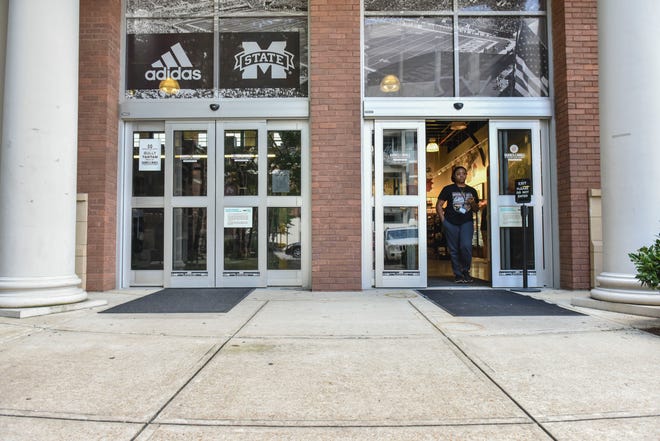A suspect has been identified in the case of at least 12 bomb threats made Thursday at several Mississippi colleges and universities, a state official said Monday.
“I can tell you, without getting too detailed into the investigation, we have identified a source of the bomb threat,” said Keith Davis, deputy commissioner of operations at the Mississippi Department of Public Safety.
The threats, made at both public and private universities as well as a number of community colleges, occurred a day after similar threats in Alabama and Tennessee, though officials did not say whether the cases in other states were connected to those in Mississippi.
In a case earlier this year, on the first day of Black History Month, several Historically Black Colleges and Universities received bomb threats, including those in Mississippi.

According to multiple reports, FBI officials said they had identified several juvenile suspects in those threats, though it is unclear whether arrests had been made or charges filed.
In other news:Kimberly Clark dreams of building ‘NBA for HBCU Players,’ and she’s bringing it to Jackson
For subscribers:Mississippi Class 3A high school football preview, predictions for 2022
Davis, who oversees the state’s office of homeland security, said in terms of last week’s bomb threats Mississippi students should feel safe as fall semesters are set to begin.
“This investigation was investigated very thoroughly, and there was no threat found in Mississippi, so as far as law enforcement is concerned, in Mississippi, there is no lingering threat to any students in our state,” Davis said.

Davis said bomb threats are “fairly common,” but they often involve a student making a threat against their specific school. This is the second time this year that multiple higher education institutions have been targeted in a coordinated way.
“Kids that don’t want to take a test or didn’t complete an assignment, or something like that, is what we normally see,” Davis said. “These more national ones are not as common, however. We had a situation several months ago with the HBCUs in Mississippi receiving bomb threats. So it is kind of unique that we received (this) second round so close to those.”

Davis wouldn’t say whether coordinated multi-campus threats are becoming more common, but did say he does not remember “having a large scale threat of this magnitude” last year.
Matthew Steffey, a criminal law professor at Mississippi College, said the act of making a bomb threat can carry with it a 10 year prison sentence for each count.
“It’s not required to prove the person intended to detonate a bomb, intended to murder anyone, intended to destroy property,” Steffey said. “The threat itself is the crime.”
Each threat is a separate crime, Steffey said, meaning that a person convicted of making threats could be sentenced up to 10 years for each campus they threatened.
If 12 threats were made by the same person, the maximum penalty would be 120 years, but Steffey said a sentence “beyond a person’s lifespan when there’s no loss of life or property or personal injury,” would be abnormal and unlikely to be upheld on appeal.

“It’d be unusual for it to be sentenced that way, but they could be sentenced for up to that many counts,” Steffey said.
In other news:Barnett Reservoir: Some still want to rename lake, civil rights legend calls it frivolous
Medical marijuana:How is Mississippi’s new industry unfolding as licenses are approved
Mississippi homeland security worked closely with their federal counterparts and the FBI during the investigation. Katie Greenleaf, spokesperson for the FBI’s Jackson Field Office, said in a statement that they are investigating threats made across the country, including those in Mississippi.
“Although at this time no explosive devices have been found at any of the locations, the FBI takes all threats seriously,” Greenleaf said. “The investigation involves 34 FBI field offices working closely and sharing information with our law enforcement partners at the national, state and local levels. As always, we would like to remind members of the public that if they observe anything suspicious to report it to law enforcement immediately.”
Davis thanked local, state and federal law enforcement for their work.
“Mississippi law enforcement engaged very early on and were able to mitigate any specific threats to any institution that received a bomb threat,” Davis said. “So you should be proud of how law enforcement responded on the state and federal level.”

Steffey said in his experience perpetrators are often juveniles, which can make sentencing and the release of information more complicated.
“It is such a, for lack of a better word, juvenile crime,” Steffey said.
That said, when a suspect is found, conviction rates are high, according to Steffey.
“It’s one of these things where you either have the wrong person or not,” Steffey said. “In other words, there’s not a lot of defenses that come to mind. There’s not a great deal of complexity to the elements of the charges … Either you called in a bomb threat or you didn’t.”

